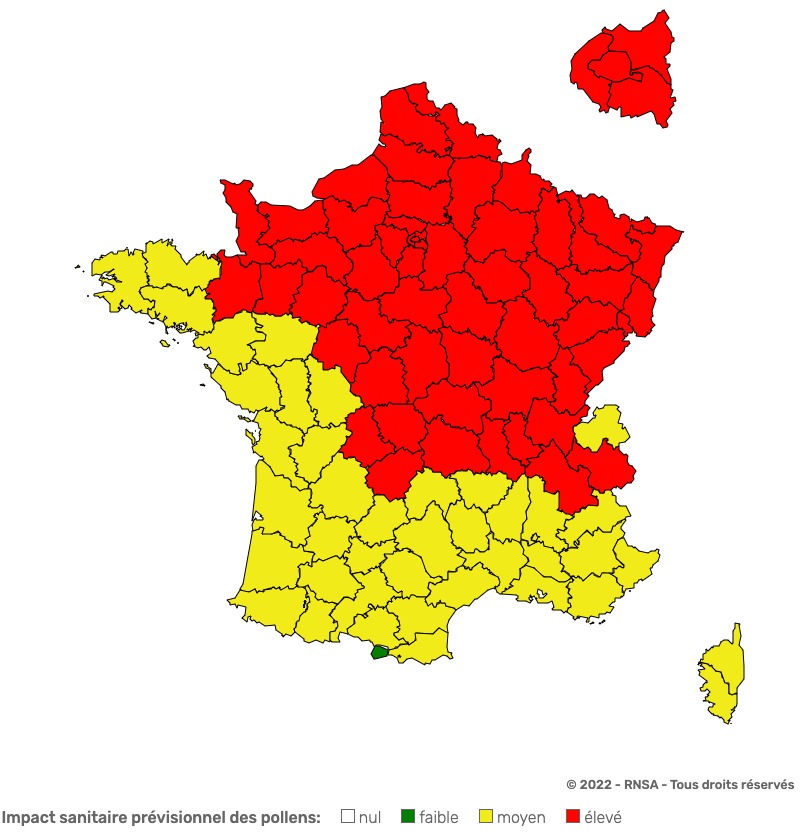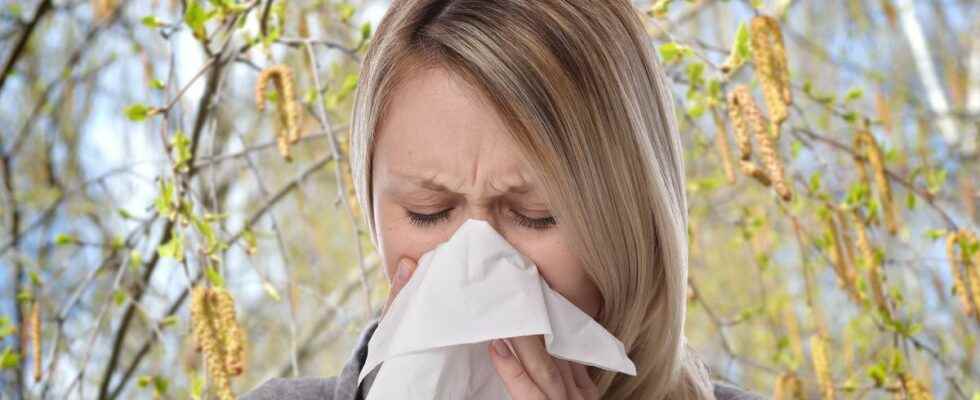Posted ,
Reading 2 mins.
Several departments in the North of France are affected by a pollen peak emanating from birches. What are the forecasts? What actions should be taken to protect against pollen allergies?
A high level of birch pollen
The arrival of the spring season is accompanied by the pollination of trees, especially birches. To help people sensitive to pollen and prone to allergies, an association law of 1901 was created to monitor the content of the air in biological particles, it is the National Aerobiological Surveillance Network (RNSA).
On April 13, the large northern part of France was affected by a pollen peak. The Hauts-de-France, the Pas-de-Calais, but also the Rhône are on red alert for allergies to birch pollen.
Indeed, the return of good weather and a mild and mild climate favors the dispersal of pollen, in particular that of birches. The risks of allergy will therefore be higher in the days to come.
Plane tree pollen is also added to the pollination of birches. These are present in the air throughout France. Depending on the geographical areas, the allergic risk varies from a low level to a moderate level. As for ash trees, the concentration of pollen tends to decrease, as does the risk of allergy.
According to RNSA forecasts, pollen levels in the air should drop around April 19.

Consult an allergist online
Some good practices to fight against pollen allergies
To mitigate the effects of pollen in allergic or sensitive people, the Ministry of Health gives some recommendations. First, avoid gardens or outdoor areas where plane trees or birches are grouped together.
It is also advisable to:
- Ventilate your home, preferably before sunrise and after sunset, because the emission of pollen begins when the sun rises;
- Rinse your hair at night to get rid of microscopic seeds;
- Indoors, avoid exposure to other allergens, such as tobacco, cleaning products, etc. ;
- Avoid outdoor activities resulting in over-exposure to pollen (gardening, outdoor sports, etc.) or reserve these activities for the end of the day;
- Avoid drying laundry outside, as pollen can settle on the laundry when it is damp;
- Keep the windows closed in the car.
